Editor’s Note: When conventional medicine was failing quadriplegic Chanda Hinton-Leichtle, she knew something had to change. At just 59 pounds and chronically ill in her early 20s, her sister suggested trying integrative therapy. Thanks to those therapies, her health began to turn around, and she realized others in her situation could surely benefit from the same methods. Yet, during a discouraging phone call with Medicaid, she was told that only legislative change could get them to pay for what were in her case, life-saving therapies. Wheel:Life writer Betsy Bailey chatted with Director of Operations and healthcare advocate Maggie Cavanagh on what Hinton-Leichtle did next on how she is spearheading a campaign for systemic change in health care.

When Chanda called Medicaid and asked how she could get them to cover her integrative therapies, she explained to them that she was actually saving them money because she was on less medication and no longer using as many traditional medical treatments. They told her that in order to get those therapies covered by Medicaid, it would take legislative change. So, she created the Chanda Plan Foundation to advocate for Medicaid to pay for integrative therapy. We know it improves quality of life. We know it's cost-effective. However, since these changes take time, the foundation also focuses on allowing people to access services right now.
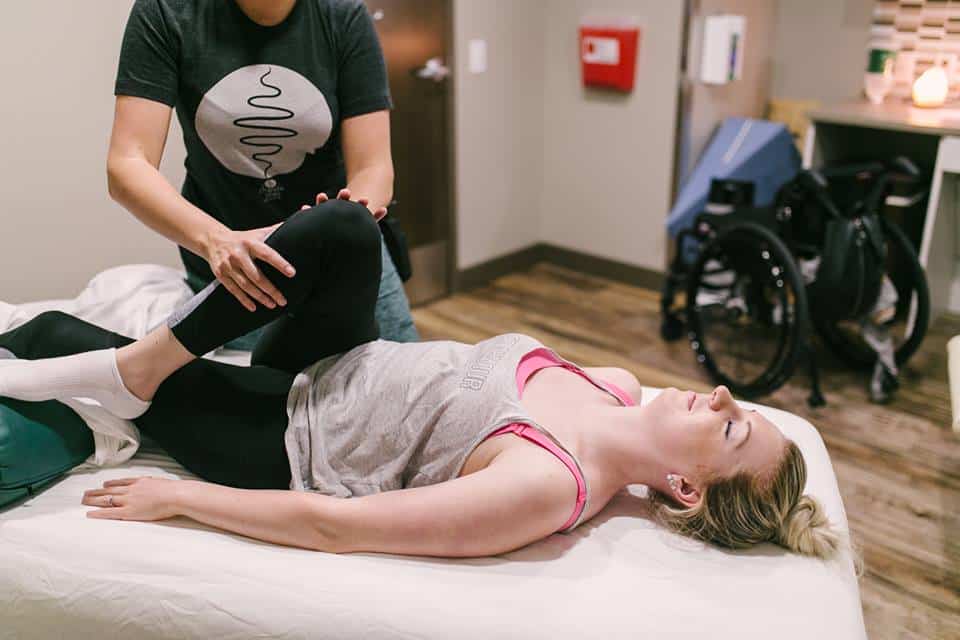
The Chanda Plan is a national program. Anybody living in the United States who meets our eligibility criteria can apply and ask for financial assistance to get therapy at a provider location near them. They can ask for funding for massage, acupuncture, chiropractic, yoga, adaptive exercise, and physical therapy from a provider accessible to them. That may mean receiving service at a provider near them or finding someone who can come to their home.
Editor’s Note: More information on the nationwide provider-based program and eligibility requirements can be found here.
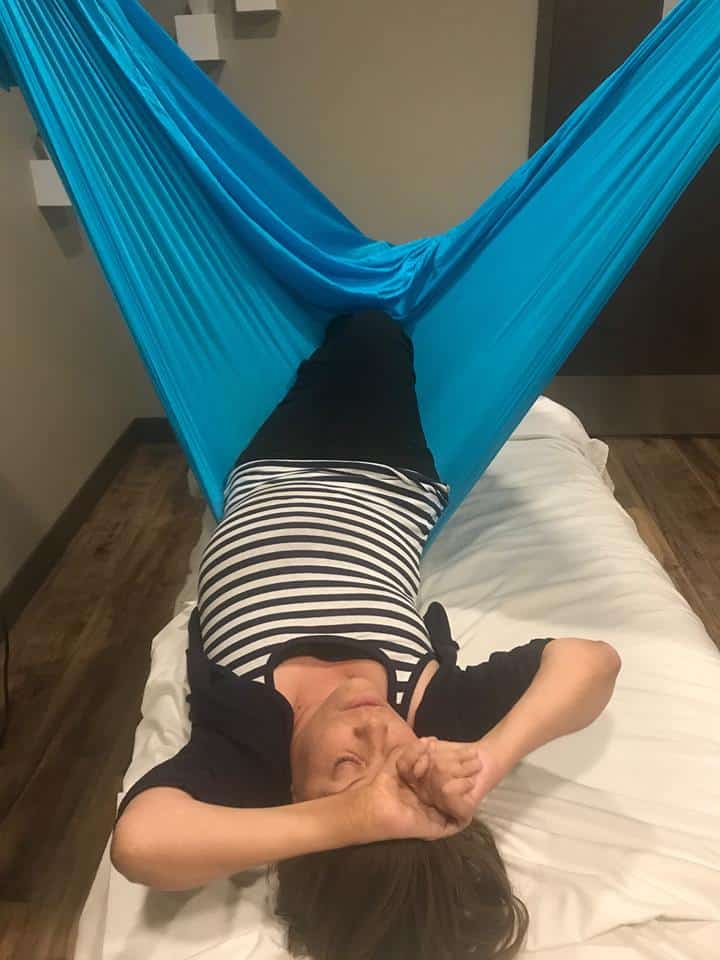
On the legislative front, we passed a pilot program called the Spinal Cord Injury Waiver. It was passed in 2009 and initiated in 2012. With the SCI Waiver, people on Medicaid over the age of 18 living in the Denver Metro area with a diagnosis of SCI can receive massage, acupuncture, and chiropractic care paid for by Medicaid.
Our ultimate goal is to make this a permanently covered benefit for those with not only SCI but other disabilities as well.
Through the program, we're collecting information to show that these therapies lead to an improved quality of life which allows people to rejoin the community. Integrative therapy is also more cost-effective than going to the ER and taking prescription medications. The state will be studying the data to make sure it makes sense to implement the program as a permanent benefit. Currently, the SCI waiver is set to end in 2020, but we are going to be looking to renew it. We want to continue the program as long as possible until we feel we have enough data to prove its merit.
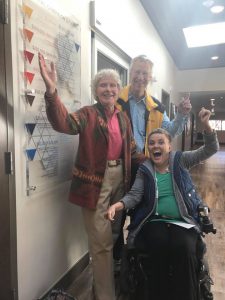 With the foundation and the Medicaid waiver, we realized we were getting a lot of demand for services. People were coming to us for the financial aspect and were also asking where they could find a quality provider. So, we decided to open our first location where we could have quality control and hire all of our own providers. We wanted to create an accessible community space so people could come and get those services and know they are seeing someone who is competent. We rented space for that service in 2013 and quickly outgrew it. We had many funders wanting to continue to help us with this program, but we just didn’t have enough space.
With the foundation and the Medicaid waiver, we realized we were getting a lot of demand for services. People were coming to us for the financial aspect and were also asking where they could find a quality provider. So, we decided to open our first location where we could have quality control and hire all of our own providers. We wanted to create an accessible community space so people could come and get those services and know they are seeing someone who is competent. We rented space for that service in 2013 and quickly outgrew it. We had many funders wanting to continue to help us with this program, but we just didn’t have enough space.
We went to our population and asked what they wanted and needed as we took on an expansion. They responded saying they needed primary care, more of what we were offering for integrative therapy, care coordination, and mental health services. We launched a capital campaign and opened Chanda Center for Health in Lakewood, Colorado in 2017. We provide a lot of services including massage, acupuncture, chiropractic, care coordination, mental health wellness counseling, biofeedback, physical therapy, yoga classes, and one-on-one aerial yoga. We also offer educational classes, a monthly wheelchair repair clinic, and get various speakers and outside resources to come in. When we hear that people need something, we try to bring in experts and host classes to provide that support.

The key term we always use when we talk about our health center is person-centered care. We feel like those with disabilities are too often looked at as their disability. They go to the doctor and someone opens a textbook and says, "You have SCI, so you need x,y, and z." At Chanda Center for Health, we're going to take into consideration who you are, your body, and your background, and then we're going to adapt our care plan with you to meet your needs. Not everyone with SCI is doing the same thing, just like not every female is doing the same thing. We don't want to lump people into groups. Person-centered care is really important to us. We also constantly advocate for collaborative care.
All of our providers work very closely together here.
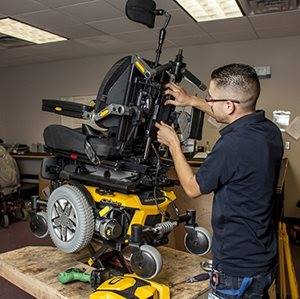 No one modality is better than the next. Acupuncture isn't better than chiropractic. Chiropractic isn’t better than a massage. All of our providers work together and share notes. We do quarterly planning meetings where all staff and providers meet together and brainstorm as a group. We get feedback from the participants every quarter as well. We ask what their needs are and involve them as much as possible in their care. It’s a true collaboration.
No one modality is better than the next. Acupuncture isn't better than chiropractic. Chiropractic isn’t better than a massage. All of our providers work together and share notes. We do quarterly planning meetings where all staff and providers meet together and brainstorm as a group. We get feedback from the participants every quarter as well. We ask what their needs are and involve them as much as possible in their care. It’s a true collaboration.
We don't have primary care yet, but we're hoping to implement that before the end of the year. That primary care provider will be obligated to work in the exact same way. Their primary care is not going to be more important than the work of any of the other integrative therapists’. They're going to have to be collaborative and honor, respect, and believe in the therapies we offer here.
At the health center, people can access services in multiple ways: apply for financial assistance through the Chanda Plan Foundation, get services covered through the Medicaid SCI Waiver, or private pay.

Editor’s Note: For class schedule and services offered at Chanda Center for Health, visit chandacenter.org.
Remember our article on adaptive aerial yoga? Sara Schaffer is now offering physical therapy and one-on-one adaptive aerial yoga sessions at Chanda Center for Health. Email frontdesk@chandacenter.org to schedule a session.
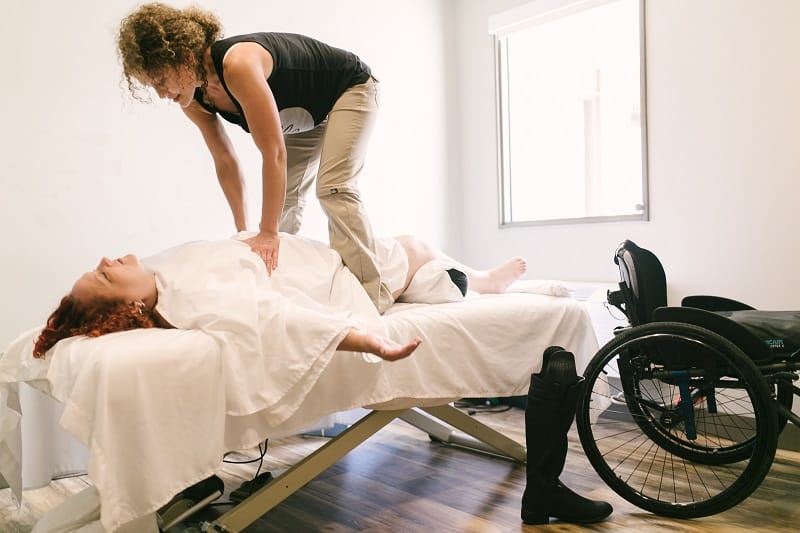
Integrative therapy used to be called alternative therapy, but alternative implies it's not a norm. We don't want to use that term anymore because we think it should be complementary to Western medicine, rather than an alternative to it. We could argue that integrative therapy is a merger of both Eastern and Western methods. For those with physical disabilities, there are some aspects of Western medicine that are absolutely necessary.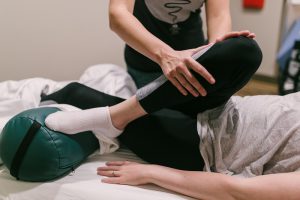
Our goal is to help people decrease their use of medication and visit the doctor less, but we know we’re always going to have a little bit of reliability on some treatments and certain surgeries. At the same time, we don't want to rely fully on that and always fall back on those textbook answers. There are ways to integrate other forms of therapy that help people mentally, emotionally, and physically by increasing movement and keeping the body in motion the way it was intended to be. That's what integrative therapy is for us. Currently, the most popular modalities are massage, acupuncture, chiropractic, adaptive exercise, and yoga, but the definition of integrative therapy could always evolve based on whatever works for our participants.
Right now, the biggest thing we can do to push for systemic change is to get people who meet the eligibility criteria to get on the SCI waiver and receive services. Strength in numbers is the best way to prove the worthiness of the program. The more people receiving services who have positive outcomes, the higher the chances are that Medicaid will turn the waiver into a permanent benefit.
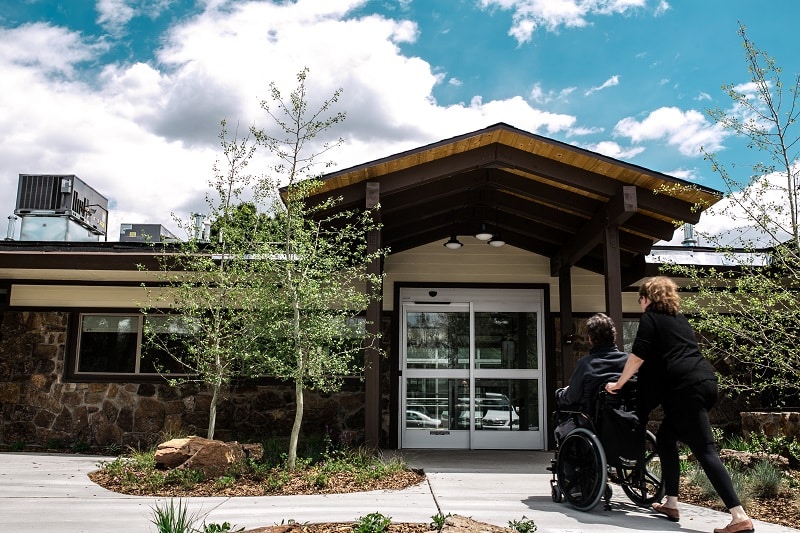
Contact us! If you’re eligible for financial assistance, you can apply with us, and we will help track down providers that are near you or can come to you. We have care coordinators whose role is to advocate, research, and help people find resources near them. They'll figure it out with you.
When someone gets injured, it's overwhelming. There's so much they don't know, and the system is complicated. We try to be experts in as much as we can. What we're not experts in, we put in the legwork and research it. When in doubt, if you are looking for integrative therapy and have a physical disability, contact us. We'll go through the process with you to find the appropriate program.
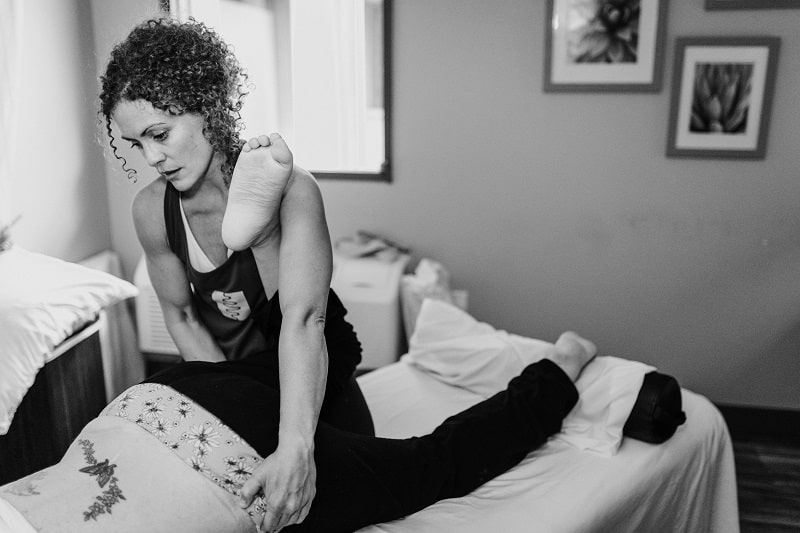
Just get in touch, and we'll lead you in the right direction.
Editor’s Note: The Chanda Plan Foundation relies heavily on donations, grants, and fundraising opportunities. If you’d like to make a contribution or participate in a fundraiser, details can be found at chandacenter.org/donate.
Follow The Chanda Plan Foundation on social media:
Betsy Bailey has a diverse background including experience in marketing research at American Express, business operations and client relations with 601am, travel and culinary writing with VegDining, and playing volleyball professionally overseas.
Betsy is excited to get back into writing, something she’s adored since childhood, and thoroughly enjoys the process of getting to know her interviewees. On top of her work with Wheel:Life, she also teaches students learning English as a second language, speaks French fluently, and travels any chance she gets!